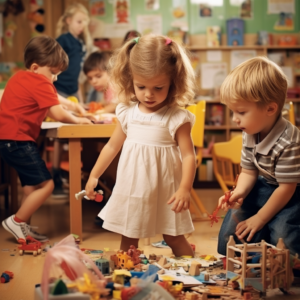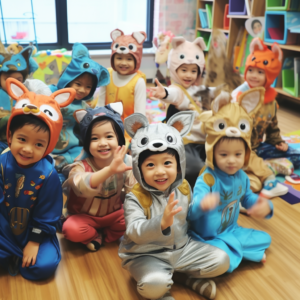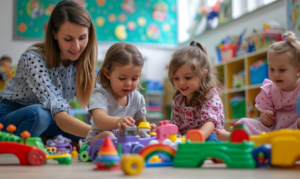Pets play a vital role in a child’s early development, influencing their emotional, social, cognitive, and physical growth.
From fostering empathy and responsibility to enhancing social skills and reducing stress, the benefits of pet ownership for children are vast and well-documented. This article explores these multifaceted impacts and provides insights into how parents can facilitate positive pet-child relationships.

The bond between children and their pets is often profound and meaningful. This relationship goes beyond simple companionship; pets can significantly contribute to various aspects of a child’s development. Research indicates that pets can enhance children’s mental health, social skills, cognitive abilities, and physical well-being. Understanding these benefits can help parents make informed decisions about integrating pets into their family life.
Emotional and Mental Health Benefits
One of the most notable benefits of pet ownership is its positive impact on children’s emotional health. Pets provide unconditional love and support, which can be crucial for children dealing with stress, anxiety, or depression. Interacting with pets releases endorphins and reduces cortisol levels, promoting feelings of calm and comfort (Johnny Holland) (ParentTV).
Children often find it easier to express their emotions to pets, who offer a non-judgmental presence. This can serve as an emotional outlet, helping children manage their feelings more effectively. Moreover, the routine of caring for a pet instills a sense of responsibility and consistency, which can be stabilizing for young minds (Johnny Holland).
Social Skills and Relationships
Pets can significantly enhance children’s social skills. By observing and interpreting their pet’s non-verbal cues, children learn to empathize and understand emotions better. This skill translates into improved interpersonal interactions with peers and adults (AACAP) (HABRI).
Pets also act as social bridges, particularly for shy or introverted children. The common ground provided by pet ownership can facilitate conversations and interactions with others, fostering new friendships and social connections. Activities like walking a dog or visiting a pet park provide natural opportunities for social engagement (TinyTails).
Cognitive Development
Interacting with pets can stimulate children’s cognitive growth. The responsibility of caring for a pet teaches time management, organization, and problem-solving skills. Children learn about biology and animal behavior through hands-on experiences, sparking curiosity and a love for learning (The Dogs Journal).
Research also suggests that strong bonds with pets can enhance children’s academic performance. Studies have found correlations between pet ownership and higher scores on cognitive tests, indicating that pets might indirectly support academic achievement through improved focus and discipline (ParentTV).
Physical Health Benefits
Pets, especially dogs, encourage physical activity, which is crucial for combating childhood obesity and promoting overall fitness. Regular activities like walking, playing fetch, and other forms of exercise contribute to better physical health and can instill lifelong habits of staying active (WW Medical Group).
Moreover, early exposure to pets has been linked to a reduced risk of allergies and asthma. The hygiene hypothesis suggests that early exposure to pet allergens can help strengthen the immune system, making children less susceptible to these conditions as they grow (ParentTV).
Behavioral Improvements
Pets can positively influence children’s behavior by teaching responsibility, empathy, and self-control. Caring for a pet requires commitment and consistency, which helps children understand the consequences of their actions. This realization encourages better decision-making and fosters a sense of accountability (Johnny Holland) (The Dogs Journal).
Additionally, pets provide an outlet for managing emotions. The simple act of petting or playing with an animal can help reduce stress and redirect negative energy, leading to improved behavior and emotional regulation (Johnny Holland).

Choosing the Right Pet
Selecting an appropriate pet for your child is crucial to ensuring a positive experience. Consider the child’s age, temperament, and the level of care required by different pets. Younger children may benefit from low-maintenance pets like fish or hamsters, while older kids might be ready for the responsibilities of caring for a dog or cat (The Dogs Journal).
It’s also important to consider any allergies within the family and choose hypoallergenic breeds if necessary. Parental supervision and involvement are essential, especially for younger children who may not be able to manage all aspects of pet care independently (AACAP).
Teaching Respect and Responsibility
Educating children about the ethical treatment of animals is a vital aspect of pet ownership. This includes understanding the needs and well-being of their pets and treating them with kindness and respect. These lessons extend beyond pets, fostering a broader sense of empathy and ethical responsibility towards all living creatures (HABRI).
The benefits of pet ownership for children are extensive and multi-faceted. From emotional and social development to cognitive and physical growth, pets play an invaluable role in shaping well-rounded, compassionate individuals. By carefully selecting an appropriate pet and fostering a positive pet-child relationship, parents can provide their children with enriching experiences that contribute to their overall development.
If you’re considering bringing a pet into your home, think about the numerous benefits they can offer your child. Ensure you choose the right pet for your family and involve your children in the care and responsibilities. This decision could be a step towards nurturing empathy, responsibility, and a lifelong love for animals in your child.












